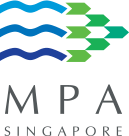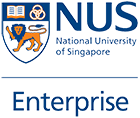Making Seafarer Training Safer and More Accessible through Virtual Reality
Start-ups Technology Area : Artificial intelligence, Augmented/Virtual Reality

Kanda is a start-up that is leveraging virtual reality and elements from computer games to develop immersive and human-centred digital learning applications that enable collaborative teamwork across platforms. For the maritime industry, this translates into safer and more accessible training for seafarers and other maritime personnel.
The Journey So Far
As an IT graduate, Kristian Andreasen started tampering with the
idea of using games for a more purposeful endeavour – as a learning tool. This eventually led to the founding of Kanda in 2011. They completed their first commercial project for kids with ADHD and Aspergers in 2014. By 2016, virtual reality had become the key development focus for Kanda and they soon found success in heavy industry training.
Through Smart Port Challenge (SPC) 2019, Kanda identified an opportunity with Teekay Tankers to create a 3D environment for training and marketing purposes. With the support of an MPA grant, they embarked on a pilot project to create a digital twin of the entire Limerick Spirit vessel and develop a virtual reality training module for Teekay’s lock out tag out (LOTO) procedures. That was just the beginning of their journey in maritime.
In collaboration with Eastern Pacific Shipping (EPS), they obtained a classification approval from Lloyd’s Register for the first virtual reality course for LNG bunkering procedures in 2021.
Virtual Training as an Effective Enabler
Traditional methods of seafarer training are costly and time consuming, often involving travel and access to specialised training centres for familiarisation, hands-on practice and effective retention of knowledge.
By utilising virtual reality as a training tool, real-life scenarios can be simulated in a digital environment without the risks associated wit harsh or hazardous environments, mishandling of equipment or mis-management of procedures. It also promotes team collaboration without the need for physical travel to the same location or risk of virus transmissions in light of the ongoing pandemic.

We set out to create value-adding virtual training for the maritime industry. Participating in Smart Port Challenge gave us the opportunity to connect with and validate our solution with relevant corporates. We also gained valuable input on pitching and talking to investors – a skill all start-ups looking to grow will benefit from.
Kristian Andreasen CEO

Founded 2011, Denmark
Kristian Andreasen CEO
Key Results
Looking Forward
Since securing a S$2 million seed funding from EPS in 2021 and bringing a certified virtual reality LNG bunkering training to market, Kanda plans to continually evolve education and training through immersive digital simulation methods and expand to several other industries.
Shortlisted finalists are enrolled in a two-phase, 12-week programme.
Phase 1: Fit Check - Market Discovery and Validation
Kickstart your journey by diving deep into the heart of your market! In this phase, we'll help you answer the pivotal question: Is there a product-market fit for your solution? Validate your tech, test your assumptions, and find the perfect match for your innovation. A review will be conducted at the end of Phase 1. Only selected participants will advance to Phase 2.
Phase 2: Gap Busters - Navigating New Markets
Now, it's time to bridge the commercial gap. In this phase, you’ll partner with industry veterans who bring sharp business insights to the table. Together, you’ll navigate and conquer markets that may be uncharted territory for your startup.
Although the programme is designed for remote and overseas participants, in-person participation is required for the following events conducted in Singapore:
- 2 - 5 Sep - Programme Kick Off & Industry Networking
- 24 - 26 Sep - Industry Networking & Exploring Maritime Sg
- 28 - 30 Oct - Workshops & Networking
- Semi-Final & Great Circle (Grand Final) and related events



